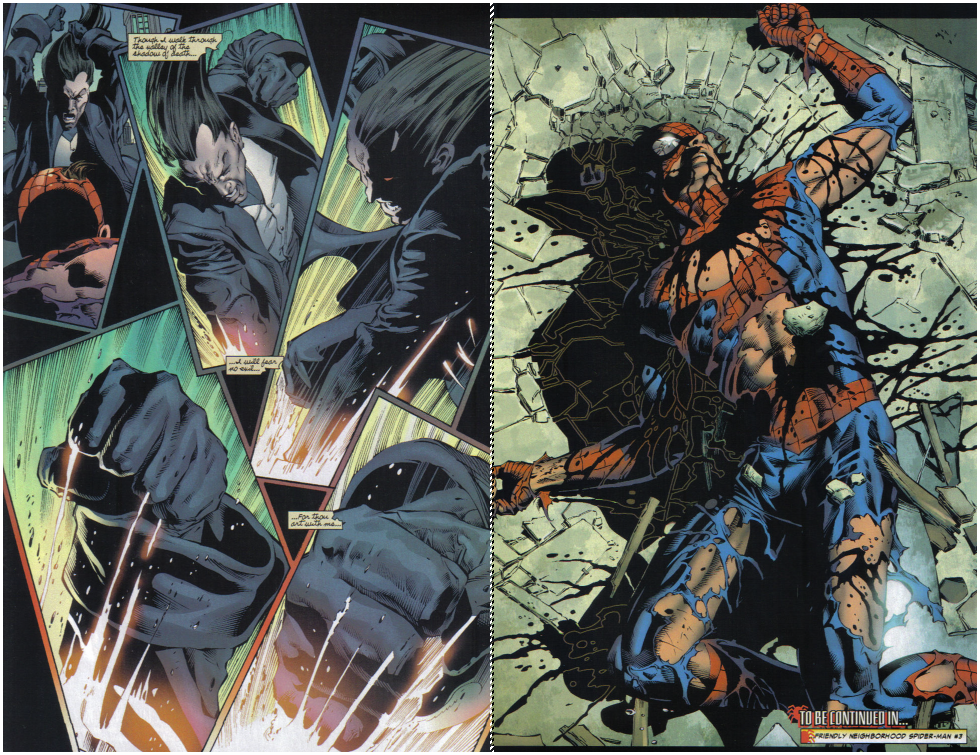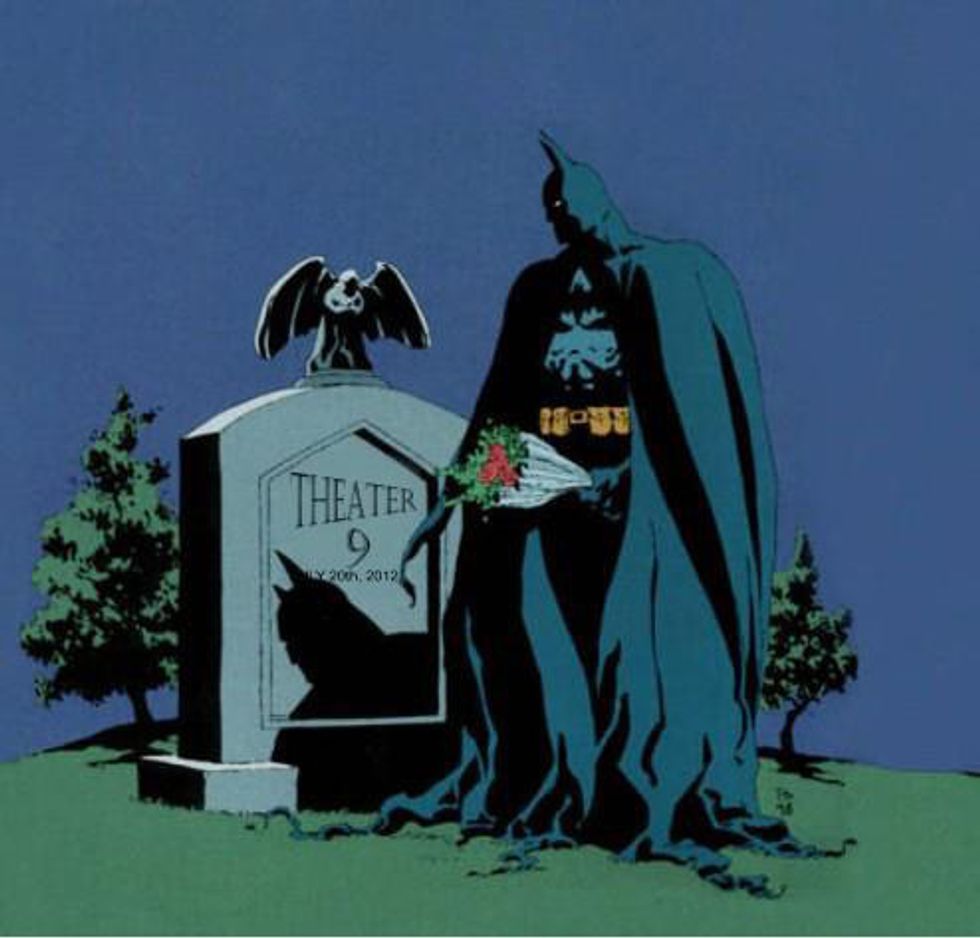Unlike a number of my friends and classmates, I was never an avid reader growing up. This is not to say that I hated reading, but I never wanted to commit to it, even if it was "Harry Potter" or "The Lord of the Rings." An area of reading that did catch my attention, however, was comic books. When comic-book-based films were released in the early/mid 2000s, I began to have an interest in superheroes, from Superman to Captain America. I now have a collection of over 200 comic books and nearly 20 graphic novels. These pieces of literature vary from Batman to Captain America, Suicide Squad, Darth Vader, and more. Despite the popular rise in comic book films and television series, there is still this idea that comic books are meant for children or teens rather than adults and are not seen as literature by everyone. For me, I believe that they are a rather interesting and significant part of literature as they focus on ethics, politics, the multiverse theory, and time travel. To understand my love and fascination for this area of literature, we need to take a look back at my life real quick.
The spark of my fandom
Since I was a child, I have had a large enjoyment for comic books revolving around superheroes, whether it was of Marvel or DC. I remember in the early 2000s when my father first introduced my brothers and I to Sony Pictures' "Spider Man," (2002) I was amazed. The reason why I connected with Spider Man and Peter Parker so much was because like the character, I felt like a bullied outcast, and I could relate to him on that level. Beyond the fact that he could kick villain's butt and save lives in the process, I greatly enjoyed seeing him struggle with both identities as he tried to still be the Peter Parker that everyone knew and loved while still being the Amazing Spiderman that everyone else knew and loved. Not long afterwards, I began to read comics at my local libraries and became very fascinated by everything about the character. A few years later, my parents bought me an encyclopedia on Spider-Man from his beginnings in the 1960s to present day (mid-2000s). There was a specific storyline that caught my attention which was a storyline about a new immortal villain by the name of Morlun who had been hunting down Spider Man for some time. When I began reading the series, I was on the verge of tears of what the story led up to.
My favorite childhood hero dying in front of my eyes with the words from the Bible, "Though I walk through the valley of the shadow of death, I will fear no evil, for thou art with me." I began to then question certain areas of topics such as sacrifice or how far a hero is willing to go to save the day. Around this time, Christopher Nolan's "The Dark Knight" (2008) was released which to this day is my favorite comic book movie of all time. It really dealt with certain areas I never thought were possible in comic books such as ethics and psychology. From then on, I began to have more of an interest in comic books regarding these certain areas and began to read and analyze whatever I could get my hands on. There was something more interesting about these topics than simply the cliché of good winnings and bad guy's losing.
The depth beyond colorful pictures
Fast forwarding to my college years, I still greatly uphold comic books as a strong and significant piece of literature. What really set me on this path in my adult years was DC Comics 1988 graphic novel titled "Batman: The Killing Joke." While it was a one-shot graphic novel, this story in particular challenged my mindset as I thoroughly began to analyze the graphic novel to the core. The graphic novel deals a large amount with psychology, nihilistic philosophy, feminism critique, and rhetoric known as terministic lens. Throughout my college courses, a number of my papers circled around the certain comic book stories the Joker's nihilistic philosophy to Murphy's Law and the multiverse theory connection.
Beyond philosophy and controversy, characters within comic books have also grabbed my heart in ways very few fictional characters have. Most characters are known to have tragic backstories from parents to wives, husbands, or even the whole family. What I always found interesting was while most heroes have similar backstories, their responses to their loss or tragedy are completely different. Frank Castle witnessed his wife and daughter being gunned down by gang members while Bruce Wayne witnessed his parents gunned down after an attempted robbery. Both lost the ones they loved yet responded differently to the situation. While both became vigilantes, Batman stands for justice while the Punisher stands for punishment. Batman disregards the use of guns while the Punisher embraces them. Batman does not kill while the Punisher does in some of the most brutal way possible. Seeing characters have different responses in certain areas makes one thing about real life situations and how we respond. If someone lost their parents, would that move them closer to God or push them away? Would they seek revenge or respond in forgiveness?
Another area of comics that I absolutely enjoy is today's focus on superheroes as godlike figures and deities. In 2013's "Man of Steel," the film heavily deals with how humankind could respond to the idea of a godlike figure living among us. In 2015's "Age of Ultron," the film deals with the consequences of what happens when man tries to play God when creating super intelligent beings. There is something very interesting when villains and even heroes become or are viewed more than just people with power, but gods. One of these moments that greatly blew my mind was Lex Luthor's speech to Superman in "Batman v. Superman: Dawn of Justice" (2016). While they're standing on top of the villain's headquarters, LexCorp Tower, he says, "What we call God depends upon our tribe... because God is tribal, God takes sides! No man in the sky intervened when I was a boy to deliver me from daddy's fist and abominations. I figured out way back if God is all-powerful, He cannot be all good. And if He is all good, then He cannot be all-powerful. And neither can you be." My mouth dropped as I began to really think about those words and just how people would view superheroes let alone the idea of God himself. This is starting to become a large topic in comic book literature, both on the pages and in film, a topic that is a particular favorite of mine.
Superhero comic books have been around for over 70 years and continue to be popular today. To say, however, that comics are meant for children simply because they have pictures or do not deal with in-depth topics (which they do) is a large understatement. There are a large amount of comic storylines and films that deal more than just with good vs. evil. They deal with ethics, politics, relativism, the multiverse theory, alternate universes, time barriers, and more. The same way that novels deal with certain topics and character development — whatever the genre may be — comic books do the same. It is because of comic books that I have been able analyze communication patterns, how tragedy shapes one's character, stances on certain ethical beliefs, and more and to be honest, I would not trade these comics for anything.






















